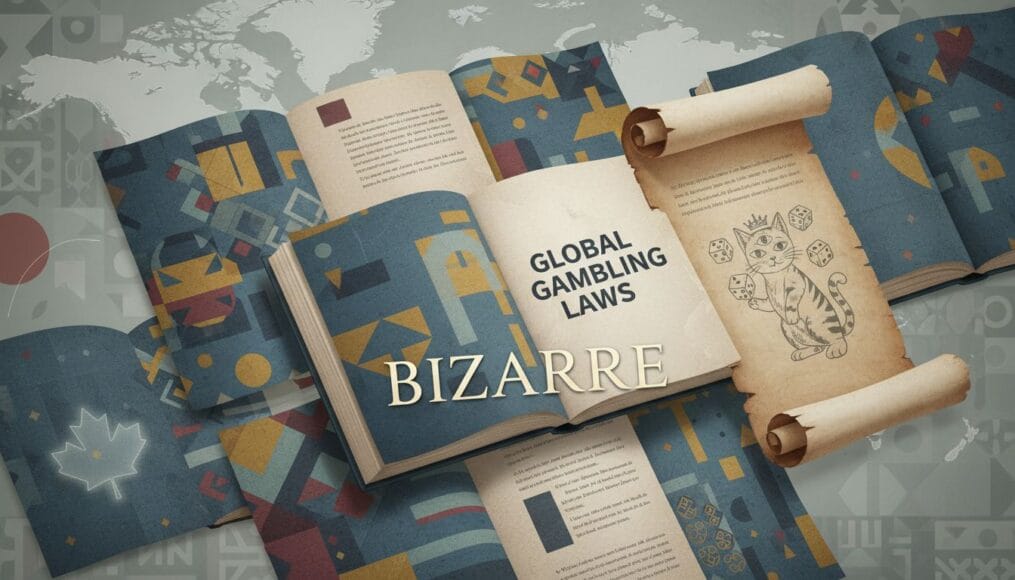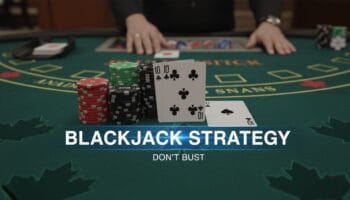Five Bizarre Gambling Laws Around the World

The world is full of peculiar laws, some of which have long outlived their original intent, while others simply defy common sense. When it comes to gambling, a pastime enjoyed by millions, the legal landscape can be particularly fascinating, revealing a tapestry of cultural norms, historical quirks, and moral stances.
In Canada, the gambling environment is largely regulated at the provincial level, offering a structured and generally straightforward framework for everything from mobile casinos to land-based establishments. However, looking beyond our borders, and even into Canada's own past, we uncover some truly bizarre gambling laws that might make you scratch your head.
While Canada's current regulations are designed for clarity and player protection, let's explore some of the most unusual gambling laws from around the globe and a notable historical Canadian example.
Canada's Historical “Blue Laws”: The Lord's Day Act
Before 1985, Canada had a federal statute known as the Lord's Day Act. This law, rooted in religious observance, prohibited most commercial activities, including many forms of entertainment and gambling, on Sundays. For decades, this meant that many businesses were closed, and activities like professional sports, concerts, and even some forms of casual gambling were restricted or outright illegal on Sundays.
Imagine a time when a friendly game of cards or a community bingo event could be deemed unlawful simply because it was Sunday. While not as specific as some US state laws, the broad prohibition of the Lord's Day Act on leisure and commercial activities, including gambling, certainly stands out as a peculiar historical restriction in Canada's legal past. Its eventual repeal marked a significant shift towards a more secular and modern approach to public life and commerce.
Monaco's Royal Decree: Locals Can't Play
Perhaps one of the most famous and truly bizarre gambling laws comes from the glamorous principality of Monaco, home to the legendary Monte Carlo Casino. Here's the twist: citizens of Monaco are legally forbidden from gambling in their own casinos. This law, dating back to the mid-19th century, was established by Princess Caroline to ensure that the casino's profits came solely from foreign visitors, thereby protecting her subjects from potential financial ruin.
While it might seem counterintuitive for a nation to bar its own people from its most iconic industry, this unique regulation has been a cornerstone of Monaco's social policy for generations. So, if you're a Canadian visiting Monaco, you're welcome to try your luck at the roulette table, but a Monegasque citizen cannot.
South Korea's Unique Exception: Kangwon Land
Similar to Monaco, South Korea has a highly restrictive approach to its citizens gambling. With the exception of one specific casino, Kangwon Land, South Korean nationals are prohibited from entering and gambling in any of the country's other casinos. These other establishments are exclusively for foreign visitors.
Kangwon Land, located in a remote, former mining region, was established to revitalize the local economy. It's the only place where South Koreans can legally gamble in a casino setting. This creates a fascinating and somewhat bizarre dichotomy where a country embraces a thriving casino industry for tourists, while largely shielding its own population from its potential downsides, with one carefully controlled exception.
Japan's Pachinko Paradox: Not Quite Gambling
Japan has strict anti-gambling laws, yet it boasts a massive and incredibly popular industry centered around Pachinko parlours. Pachinko is a mechanical game similar to a vertical pinball machine, where players insert money to receive steel balls. The goal is to catch these balls in specific pockets, which then dispense more balls.
Here's the bizarre part: directly exchanging Pachinko balls for cash is illegal. Instead, players exchange their winning balls for “prizes” – typically tokens or small items – which they then take to a separate, often nearby, exchange centre (known as a TUC, or “Temporary Exchange Centre”) to convert into cash. This three-point exchange system is a legal loophole that allows Pachinko to operate as a form of entertainment that skirts the country's strict gambling prohibitions. It's a complex and culturally ingrained system that many outside of Japan find utterly perplexing.
The Enduring Appeal of the Unusual
From historical Canadian “blue laws” to modern-day international quirks, these bizarre gambling regulations highlight the diverse ways societies have attempted to control, permit, or even circumvent the human desire to gamble. While Canada's current gambling landscape is far more streamlined and focused on responsible play, these examples serve as a reminder of the colourful and often strange legal histories that shape our world.
Whether you're enjoying blackjack online or exploring the offerings of a regulated provincial casino, understanding the broader context of gambling laws, both past and present, adds another layer of intrigue to the game.
Most Recent News
Get the latest information







